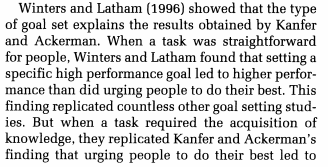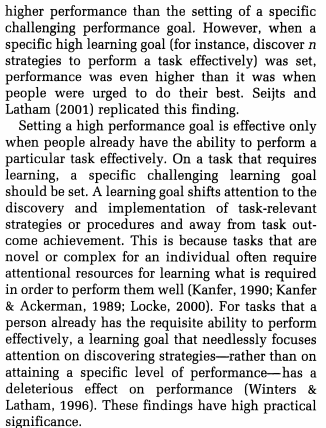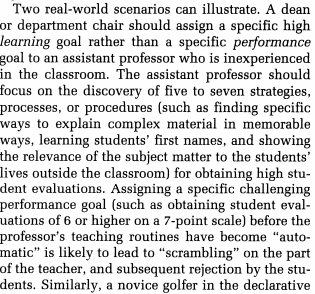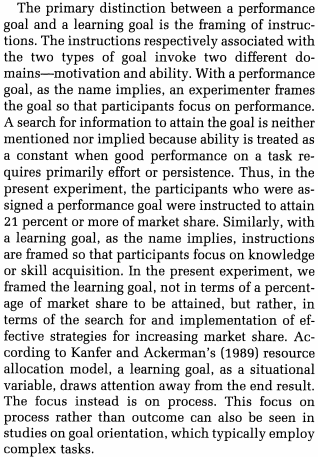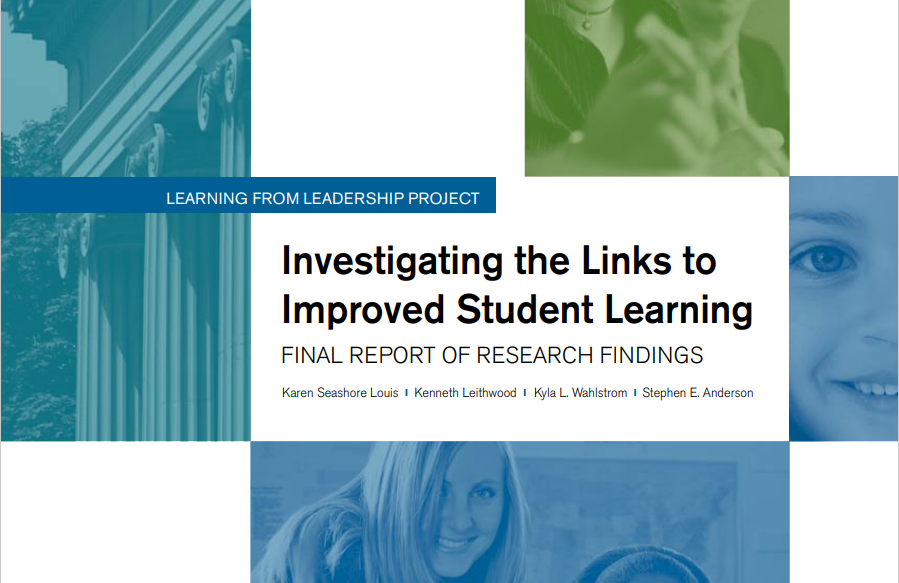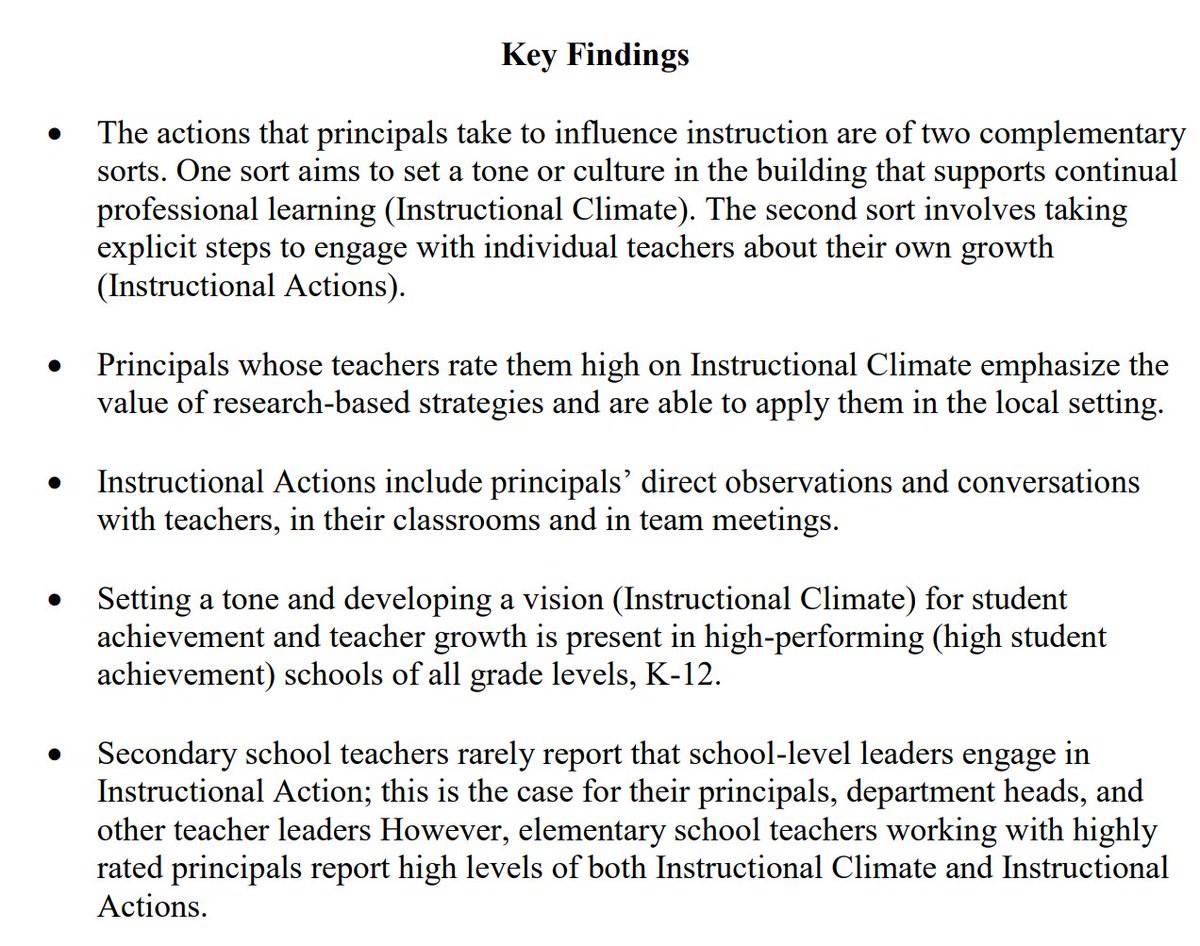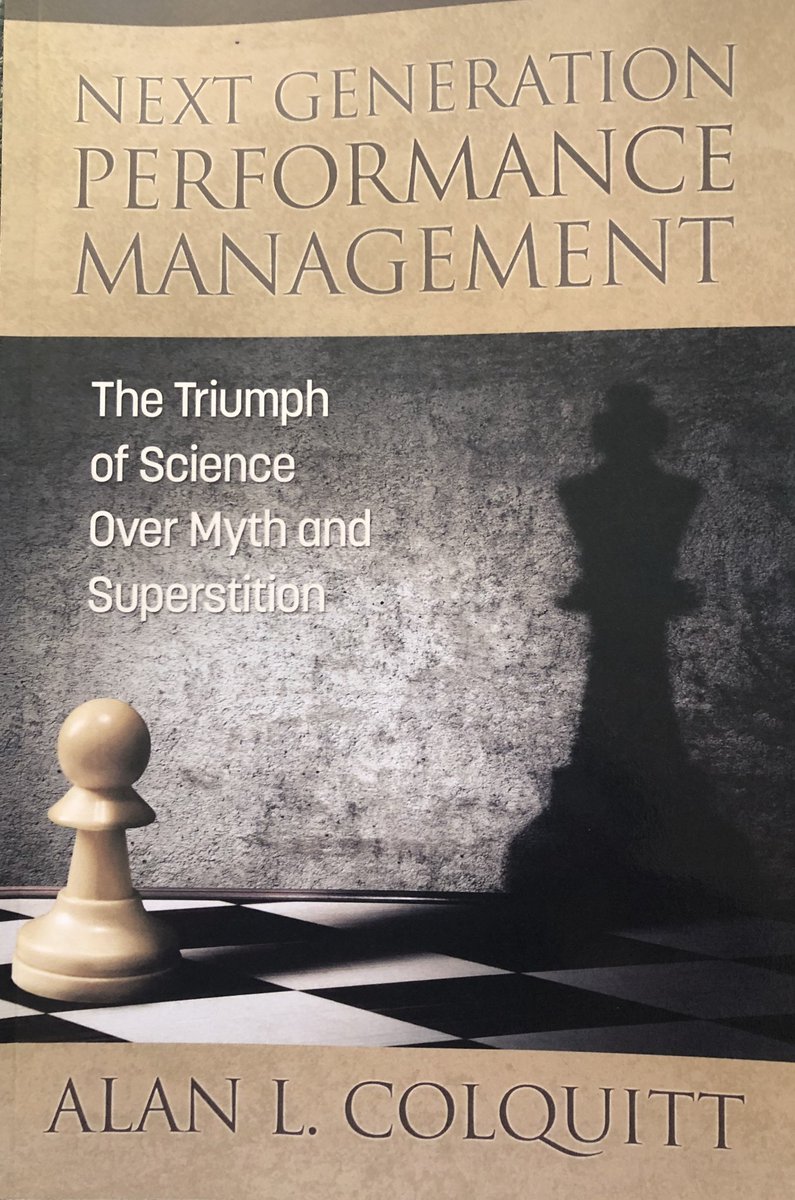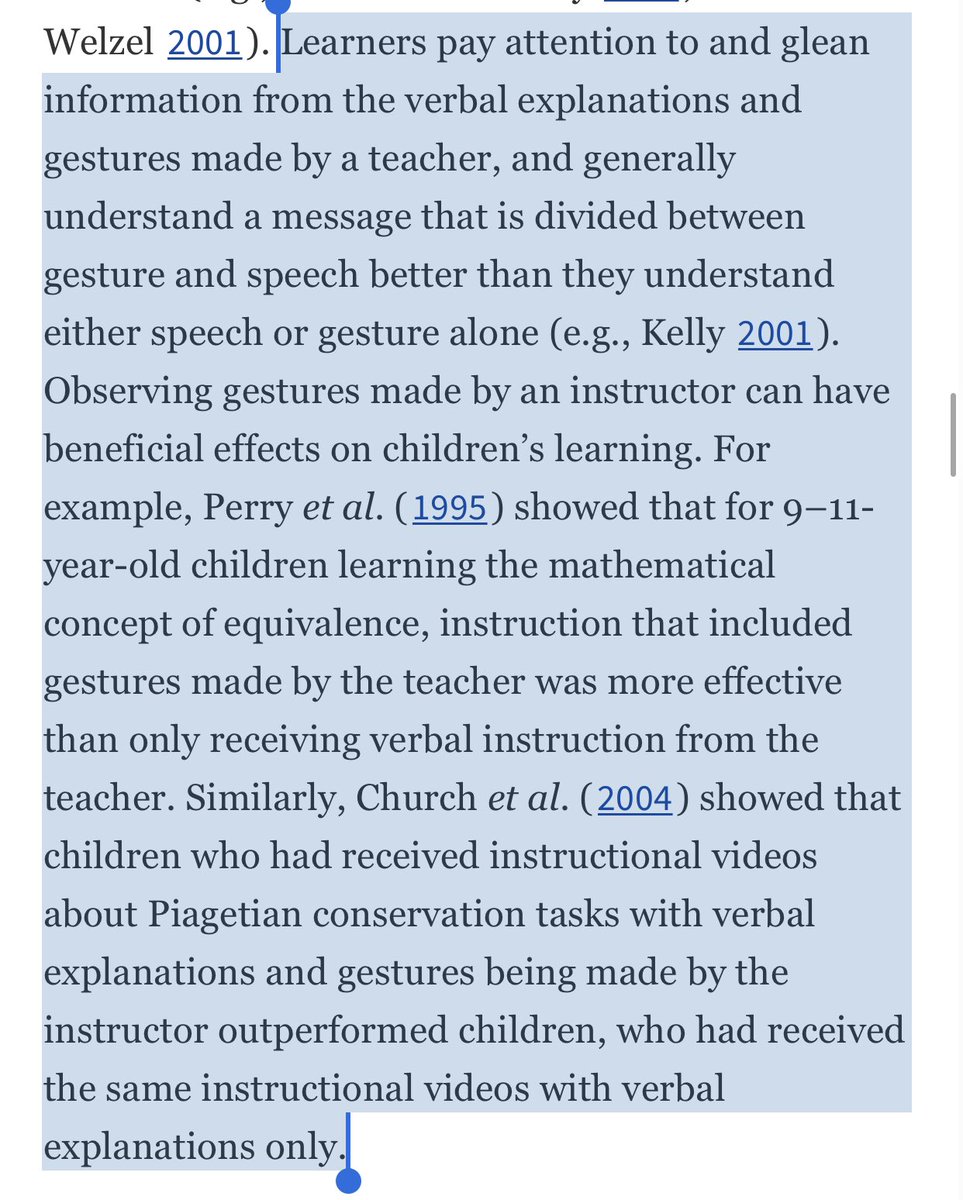
We're kicking off here at the @TeacherDevTrust webinar on performance management, with @DamienRobertsIP @chadda_amit @Concettina_J1 and chaired by @GarethConyard #TDTConf 

.@GarethConyard: when things go wrong, performance management can be seen as a deficit model, about preparing for capability, rather than a positive system #TDTconf
.@DamienRobertsIP: appraisal can be tickbox exercises that can be dismissed with little productive evidence gathered, few constructive conversations. Staff can see them as judgemental, even when grading is now frowned upon. #TDTconf
.@DamienRobertsIP notes that the DfE model approach here focuses on the developmental side of things: gov.uk/government/pub… #TDTconf
.@DamienRobertsIP takes us through key elements of the DfE model approach; touchpoints should be little and often, the process should be simple and accessible. #TDTConf
.@DamienRobertsIP: the level of training and support for teachers is the make or break for a successful system - it needs to be received well by staff #TDTconf
.@DamienRobertsIP: we're reaching very worrying levels of teachers leaving the profession and workload is a commonly cited issue, so appraisal must be done with, not to, and must not be burdensome #TDTconf
.@DamienRobertsIP: we've tried to reimagine performance management in the way we've developed @SchooliP #TDTconf
.@GarethConyard: key points in that input - how conversations + processes connect, how this links to school improvement. #TDTconf
.@chadda_amit: at @TeacherDevTrust we get to spend a long time finding out how staff and leaders feel about appraisal and performance management; I'd like to think particularly about the conditions that make appraisal work well. #TDTconf
.@chadda_amit quotes the TDT paper, A Culture of Improvement - TDTrust.org/coi - reflecting on the sorts of conditions that support both teacher improvement and retention.
.@chadda_amit quotes @RobinsonViviane to note that we don't create trust before we do the main work in schools but we create trust _through_ the hard work and conversations we have in schools #TDTconf
.@chadda_amit reflects the language is key to set this up as a process that feels supportive, the words we use matter #TDTconf
.@chadda_amit: schools that to PM well integrate it very much into every day work, regular meetings and discussions; it's not just a one-off annual thing. #TDTconf
.@chadda_amit: when line managers are confident in the way they conduct conversations and regular dialogue, it builds trust, keeps the focus on development, reduces the fear and increases the impact and helpful accountability elements on performance management #TDTconf
.@chadda_amit: annual PM conversations should be 'no surprises' - these meetings are the not the place to discover bad news but to summarise what happened in the year, the key is ongoing discussions and feedback #TDTconf
.@chadda_amit: we need to build the skills of line managers, middle leaders and senior leaders, empowering them to have powerful, non judgemental conversations. #TDTconf
.@Concettina_J1: there isn't a perfect or correct way to do performance management, but it's about finding an approach that works well. #TDTconf
.@Concettina_J1 quotes the @CIPD and @CenterforEBMgt review that identifies that appraisal relationships need to focus _either_ on judgement _or_ development - it's almost impossible for one person to do both. #TDTconf
.@Concettina_J1 draws a parallel to assessment feedback to pupils where they will focus on grades given and less on developmental comments - having the two together is hard to make work #TDTconf
.@Concettina_J1 sketches out the separate processes: one person who has regular appraisal discussions and another who is a coach with plenty of ongoing dialogue and lots of chance to tweak practice. #TDTconf
.@Concettina_J1 discusses the idea that we need to encourage a 'learning orientation' and not a 'performance orientation' if we want appraisal to lead to improvement in complex domains such as teaching #TDTconf
.@Concettina_J1 reflects that developmental-focused PM can strike some leaders as 'fluffy' but there can be a robust focus on teachers bringing and discussing formative assessment around pupils' progress but this can stay developmental and high trust #TDTconf
.@Concettina_J1 encourages us to consider not only individual appraisal but also team appraisal that encourages staff to think of themselves as part of a collective - joint responsibility to develop performance. #TDTconf
.@GarethConyard poses @Stillteaches' question from twitter
https://twitter.com/Stillteaches/status/1493993630968786947?s=20&t=hIPpilq1WOuIZfD4_woQVg
.@Concettina_J1: the key is to separate out accountability and support; one person is assessing practice but the more regular conversation is with a trusted and valued coach. #TDTconf
.@chadda_amit: it's important to make sure that record-keeping is kept light and focus on having really powerful conversations #TDTconf
Here's some key links related to todays discussions: schoolsweek.co.uk/transforming-t…
.@chadda_amit: don't try and make a change to your performance management all by yourself. You need to involve colleagues about what works, what's not liked, what could be better. Consultation + open conversations are key to creating a more collectively valued new system #TDTconf
.@DamienRobertsIP: transparency of the process is really important. If the process and the records are all secret, it's hard to trust it - again, something that software (like @SchooliP) can help with #TDTconf
.@GarethConyard puts @adamboxer1's point to the panel "Performance management is often done *to* teachers and we don't think enough about their side of things and what works and what doesn't from that angle" #TDTconf
.@DamienRobertsIP: giving staff space to be involved in the process, having some agency in their own targets, some focus on what they want to achieve - that's key. #TDTconf
.@Concettina_J1: it's fundamental that you mustn't just have the 'judgement/evaluation' side of performance management without the coaching and development side - that makes it feel much more 'done to' #TDTconf
.@Concettina_J1 picks some examples from @TeacherDevTrust network schools - e.g. a school that focused PM targets on process, not product, i.e. the discussion was around efforts made toward improvement, not around judging/comparing outcomes #TDTconf
.@GarethConyard: performance management is too often focused on individual discussions and doesn't necessarily bring in enough focus on team discussions about 'how we improve/achieve' together. #TDTconf
.@Concettina_J1: having worked in small schools, it's really tricky to get people together, hard to pair people with enough knowledge of each other's roles. #TDTconf
.@Concettina_J1: this is partly why there's no one perfect system - what works in a small primary may look very different from a large secondary, for example #TDTconf
.@chadda_amit: part of the positive outcome from effective performance management is giving staff more sense of ownership over both their professional learning and their career development #TDTconf
.@chadda_amit: we can't forget that there needs to be specific space and time made for rapid, well-structured praise, there needs to be celebration of what works well: people value specific and thoughtful recognition #TDTconf
.@GarethConyard: the faster that you can give specific positive praise, as soon as possible after it happened, the better. The same is true for feedback for improvement - so regular and quick is important #TDTconf
Some audience questions: how can we find time to train staff to do this well and to have sufficiently frequent conversations? #TDTconf
.@Concettina_J1 comes back to practical detail about how to separate out evaluation from coaching: e.g. one person who does performance related pay or career progression evaluation discussions; but a separate learning partner or coach who meets regularly for development #TDTconf
.@Concettina_J1: in another @TeacherDevTrust network school they separated different meetings into different types of conversations: 1) goal setting, 2) planning CPD, 3) line manager support, 4) reviewing. Again: there's no 1 perfect structure #TDTconf
.@GarethConyard thanks the panellists, @Concettina_J1 @chadda_amit @DamienRobertsIP and for those asking questions including @Stillteaches @adamboxer1 on Twitter and all those in the room. This is something TDT really cares about improving for teachers and schools #TDTconf
Finally, thanks from me to all the panellists, to our excellent Chair @GarethConyard, in the hot-seat just 2 weeks after starting at TDT, and to everyone who came along and contributed. The recording will be available soon and we'd love to continue this conversation.
@threadreaderapp unroll
• • •
Missing some Tweet in this thread? You can try to
force a refresh


